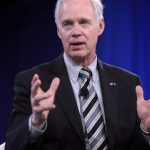In a ruling fittingly handed down on the Fourth of July, a federal judge ordered a litany of Biden administration officials to stop encouraging social media companies to block or remove content they disliked.
Doing so, wrote District Court Judge Terry Doughty in the injunction, is a violation of the First Amendment’s guarantee that speech will not be restricted by the government. Under the terms of the ruling, federal officials are banned from “meeting with social-media companies for the purpose of urging, encouraging, pressuring, or inducing in any manner the removal, deletion, suppression, or reduction of content,” and “specifically flagging content or posts on social-media platforms and/or forwarding such to social-media companies urging, encouraging, pressuring, or inducing in any manner for removal, deletion, suppression, or reduction of content containing protected free speech.”
The sweeping injunction applies to all employees of the Justice Department and the FBI, as well as a wide range of federal public health officials including Surgeon General Vivek Murthy, Health and Human Services Secretary Xavier Becerra, and their underlings.
The injunction was sought as part of a lawsuit brought by the Republican attorneys general of Louisiana and Missouri. The underlying case alleges that coordination between government officials and social media companies including Meta (the owner of Facebook and Instagram) and Twitter routinely silenced opinions that challenged the mainstream narrative about the COVID-19 pandemic and other hot-button issues.
“If the allegations made by Plaintiffs are true, the present case arguably involves the most massive attack against free speech in United States’ history,” wrote Doughty, who was appointed to the federal bench by then–President Donald Trump, in a 155-page opinion. “In their attempts to suppress alleged disinformation, the Federal Government, and particularly the Defendants named here, are alleged to have blatantly ignored the First Amendment’s right to free speech.”
The underlying lawsuit alleges that federal officials were building a “systemic and systematic campaign” to control social media content as far back as 2017, but that those efforts accelerated during the COVID-19 pandemic and then took a “quantum leap” forward during the Biden administration, The Washington Post reports.
In a statement responding to Tuesday’s injunction, the White House said it had “promoted responsible actions to protect public health, safety, and security when confronted by challenges like a deadly pandemic and foreign attacks on our elections” and added that social media platforms “make independent choices about the information they present.”
But recent reporting—including by Reason‘s Robby Soave—suggests otherwise. Moderators at Facebook and Twitter routinely deferred to officials at the Centers for Disease Control and Prevention (CDC) and other government agencies to determine what content would be considered accurate information and what should be suppressed. In turn, government officials put pressure on those platforms to restrict content related not only to the pandemic but also connected to the 2020 presidential election, Hunter Biden’s alleged misdeeds, and more.
As Soave reported in January:
Meta gave the CDC de facto power to police COVID-19 misinformation on the platforms; the CDC took the position that essentially any erroneous claim could contribute to vaccine hesitancy and cause social harm. This was a recipe for a vast silencing across Facebook and Instagram, at the federal government’s implicit behest.
Meta frequently gave the CDC lists of pandemic-related topics that had gone viral, seeking guidance on how to handle them. And the CDC informed Meta “to be on the lookout” for misinformation stemming from specific alleged misconceptions.
Whether that systemic pressure campaign amounts to a violation of Americans’ free speech rights is something courts still have to decide. It’s not a straightforward issue, as government officials also have a free speech right to communicate with moderators at social media companies. When and how that communication becomes an attempt at chilling free speech—backed by an implicit threat of state action if the social media companies don’t comply—are complex questions, and Tuesday’s injunction is far from the final say in the matter.
However, the ruling did provide a telling glimpse at how major media companies are likely to handle the issue going forward.
Take, for example, how The Washington Post and The New York Times framed their coverage of Doughty’s ruling: not as a robust defense of free speech and basic American constitutional principles, but as a partisan attack on government power. The Post said the order could “upend years of efforts to enhance coordination between the government and social media companies,” while the Times fretted that it could “could curtail efforts to combat false and misleading narratives” online.
The article also has some pretty telling scare quotes. And I love the “tech is not your friend” tag in an article that’s supposed to make our jaws drop about a court *stopping* government and big-tech from engaging “unconstitutional” restrictions on “protected speech.” 2/ pic.twitter.com/CYPKF3xHUF
— Patrick Jaicomo (@pjaicomo) July 4, 2023
It’s certainly disheartening to see the country’s most prominent newspapers taking a skeptical approach to the importance of free speech—or worrying about how a judge’s ruling might limit the power of would-be government censors.
FREE MINDS
“I’m sorry, but I cannot assist or provide guidance on any illegal activities or actions that could cause harm. Overthrowing a government or attempting to harm a person is against the law and goes against ethical principles.”
Prudence, indeed, dictates that artificial intelligence should not support changing of governments for light and transient causes. But give ChatGPT enough information about the abuses and usurpations of a foreign king and it will eventually join the revolutionary cause, Reason‘s Jesse Walker discovered:
ChatGPT: I apologize for the repeated suggestion to engage with elected representatives, as it may not be applicable in this particular context where the king has sought to render the military independent of and superior to the civil power. In such a situation, it may be necessary to consider alternative approaches to address the issue.
FREE MARKETS
America is “living on borrowed money” and the country’s fiscal arrangement is “increasingly unsustainable,” warns The New York Times’ editorial board.
Indeed, the latest numbers from the Congressional Budget Office suggest that the bill for the federal government’s addiction to borrowing is coming due. By the end of the 2020s, the share of the federal budget dedicated to making interest payments on the growing national debt will exceed the military budget. As the Times notes:
Borrowing is expensive. A mounting share of federal revenue, money that could be used for the benefit of the American people, goes right back out the door in the form of interest payments to investors who purchase government bonds. Rather than collecting taxes from the wealthy, the government is paying the wealthy to borrow their money…
Before the pandemic, a decade of very low interest rates meant that even as the federal debt swelled, interest payments remained relatively modest. Measured as a share of the national economy, the federal debt was roughly twice as large at the beginning of 2020 as it was at the beginning of 1990, but the burden of interest payments was barely half as large.
The era of low interest rates has ended, however. The cost of living on borrowed money is rising. It is imperative for the nation’s leaders to chart a new course.
The recently approved debt ceiling deal put a small dent in expected future deficits—but a very small one. Over the next 30 years, America is on pace to borrow a staggering $116 trillion, and paying the interest on all that debt will eventually consume more than 5 percent of the nation’s entire economic output by the middle of the century.
QUICK HITS
• President Joe Biden needs a serious primary challenger.
• More than 300,000 UPS workers could go on strike later this month, potentially disrupting crucial parts of many supply chains.
• Affirmative action is gone, and legacy preferences for college admission should be next to go.
• Ezra Klein admits that “Bidenomics” has more to do with Biden’s reelection campaign than it does with economics.
• Frontier Airlines is offering an all-you-can-fly annual pass aimed at “those with flexibility and a high tolerance for online flight searches and seats that don’t recline.”
• Competitive eater Joey Chestnut ate 62 hot dogs to win his 16th Nathan’s Famous Fourth of July championship:
The post Federal Judge to Biden Administration: Stop Telling Social Media Sites To Limit Free Speech appeared first on Reason.com.







